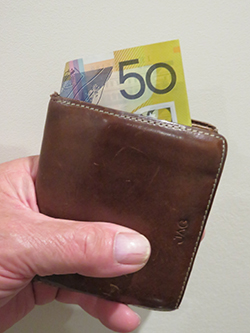Only two-thirds of GP patients bulk billed, Dept tells Senate
Contrary to the Federal Government’s insistence that the bulk billing rate stands at 83.7% the figure is actually 64.7%, the Department of Health told senators at an Estimates session in the final week of Parliament for 2016.
This contradicts the Turnbull government’s claim that bulk-billing is at a record high despite the ongoing rebate freeze, the Royal Australian College of GPs says.
More than a third of Australians have paid out of pocket expenses to see their GP in the last year, according to RACGP President Dr Bastian Seidel: “Bulk billing numbers have been subject to political spin for too long. What matters to our patients is whether or not they can afford a co-payment for the clinical care of themselves and their families.”
An RACGP report released in September suggested up to 69% of GP consultations were bulk billed, with patients paying an average of $48.69 in out-of-pocket fees.
Dr Seidel said the conversation needed to move away from using the bulk-billing rate as a benchmark.
‘‘We should be looking at how much patients pay in out-of-pocket costs. Medicare rates haven’t kept up with the rising costs of healthcare. That’s the bottom line,’’ he added.
“We know that financially vulnerable patients will delay seeing their GP if they are faced with increased out of pocket expenses, and they will eventually call an ambulance or present to emergency departments at a much greater cost to the taxpayer.
“That is why the RACGP has been calling for greater investment and appropriate funding of general practice,” he said.
Addressing the issue of the rebate freeze, Dr Seidel said, “The government’s oft-quoted figure of 83.7% has been used to justify the ongoing freeze on patient Medicare rebates, however the RACGP has maintained that this is not truly reflective of bulk billing rates.
“For the first time we now have access to data regarding how many general practice patients – as opposed to services – are bulk billed every year.
“We also know that out of pocket costs increased by more than five times the rate of inflation last financial year, and that for the first time since 2010 the proportion of the population accessing GP services went down.
“Australians are entitled to an equitable and accessible health care system, and appropriately funded primary health care is absolutely fundamental to this,” he said.
















